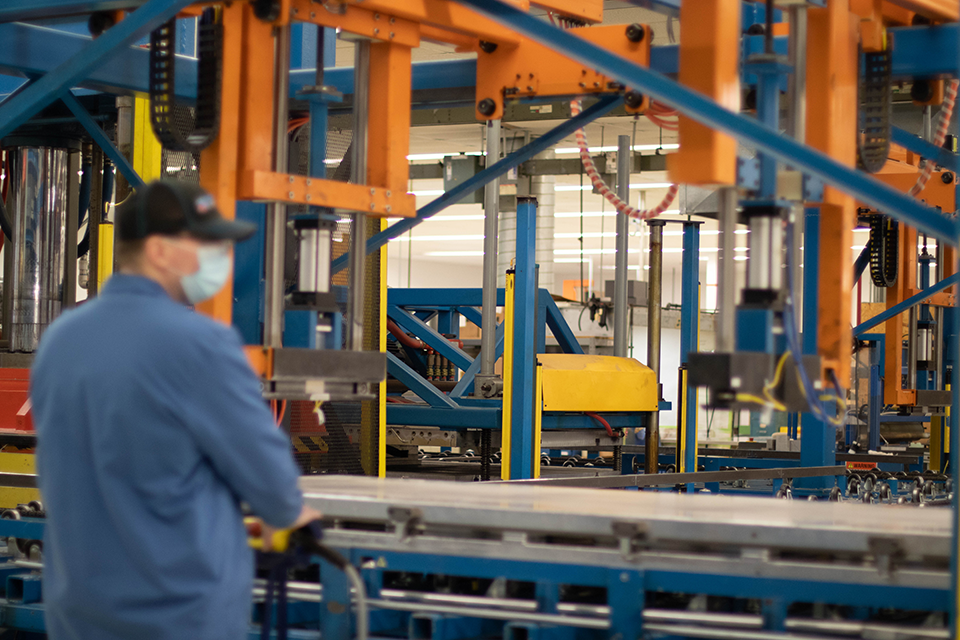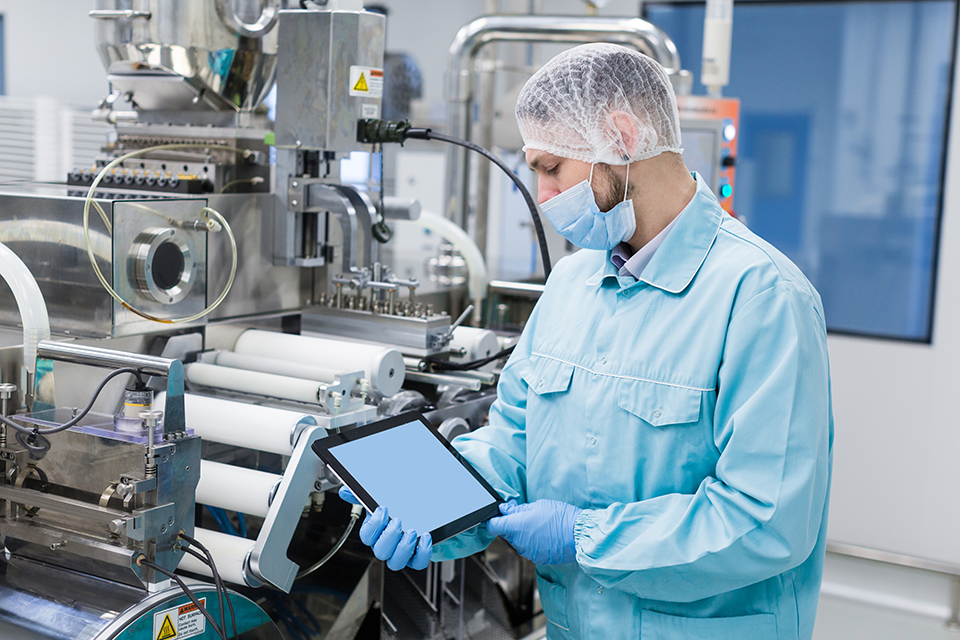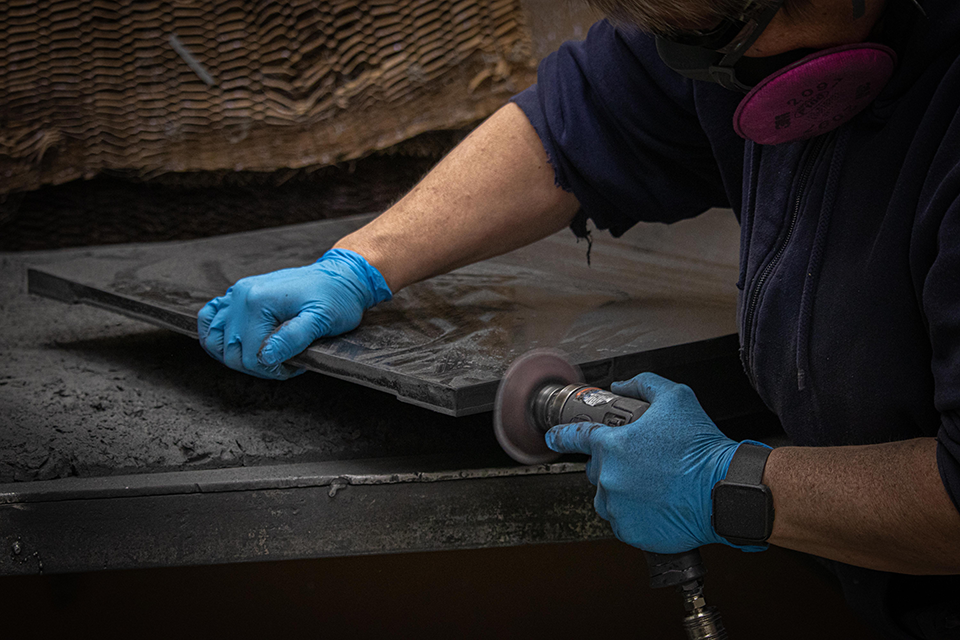Benefits of Compression Molding in Medical Device Manufacturing
Discover the intricate process of EVA compression molding and its importance in the medical device manufacturing industry. Compression molded...
4 min read
Domico Med-Device Updated on December 2, 2024
The manufacture of medical devices is a highly specialized and intricate process, requiring precision, expertise, and adherence to stringent regulatory standards. Among the various materials and techniques used in this industry, foam fabrication stands out as a critical component. This blog post explores the importance of foam fabrication in medical device manufacturing, highlights the benefits of partnering with contract manufacturers, and showcases how Domico Med-Device excels in this domain.
Foam fabrication involves the manipulation and processing of foam materials to create components or products that meet specific requirements. In the medical device industry, foam is used for a variety of applications, including patient positioning aids, cushioning, and protective packaging. The versatility of foam materials makes them ideal for creating customized solutions that enhance patient comfort and safety.

Choosing the right foam material is crucial for the success of any medical device project. Different applications require different properties, such as density, firmness, and resilience. The selection process involves understanding the specific needs of the device and matching them with the appropriate foam material. This requires extensive knowledge and experience in working with various types of foam.
Medical devices must meet high standards of precision and consistency. Foam components need to be accurately cut, shaped, and assembled to ensure they perform as intended. Any deviations can compromise the functionality of the device and potentially harm patients. Achieving this level of precision requires advanced fabrication techniques and equipment.
The medical device industry is heavily regulated, with strict standards set by organizations such as the FDA and ISO. Foam fabrication processes must adhere to these regulations to ensure the safety and efficacy of the final product. Compliance involves rigorous documentation, testing, and validation to meet the required quality standards.
 The Benefits of Outsourcing Foam Fabrication
The Benefits of Outsourcing Foam FabricationGiven the complexities and challenges associated with foam fabrication, many medical device companies choose to outsource this process to specialized contract manufacturers. Partnering with experts in foam fabrication offers several advantages, including access to advanced capabilities, cost efficiency, and scalability.
Contract manufacturers specializing in foam fabrication have extensive experience and knowledge in working with various foam materials and techniques. Their expertise ensures that the fabricated components meet the highest standards of quality and performance. By leveraging their skills, businesses can benefit from superior products that enhance patient care and satisfaction.
Outsourcing foam fabrication can be more cost-effective than maintaining in-house capabilities. Contract manufacturers have already invested in the necessary equipment, facilities, and personnel. Partnering with them allows businesses to avoid significant capital expenditures and focus on their core competencies. This approach also reduces the risk of costly errors and rework.
Contract manufacturers offer scalability and flexibility, enabling businesses to adjust production volumes according to demand. This capability is particularly beneficial for companies experiencing fluctuating market demands or launching new products. Contract manufacturers can quickly scale up or down to meet changing requirements, ensuring timely delivery of fabricated components.
Reputable contract manufacturers adhere to stringent quality assurance protocols and regulatory compliance standards. They employ advanced inspection and testing methods to ensure that fabricated components meet the highest quality benchmarks. This commitment to quality reduces the risk of product failures and enhances customer satisfaction.
 Domico Med-Device: A Leading Foam Medical Device Manufacturer in Michigan
Domico Med-Device: A Leading Foam Medical Device Manufacturer in MichiganDomico Med-Device exemplifies the benefits of outsourcing foam fabrication to a contract manufacturer. The company’s advanced capabilities, extensive experience, and commitment to excellence make it a preferred partner for businesses seeking high-quality foam components for medical devices.
Foam fabrication continues to be a key driver in our success. With decades of experience, we can help you select optimal materials and processes to fit your application. Using advanced techniques with the highest quality in mind, our capabilities are geared to produce virtually any shape or size, whether you need one piece or thousands.
Domico Med-Device utilizes state-of-the-art foam fabrication equipment, including:
Large format band saws for blanking and staging
CNC reciprocating and band saws for accurate, high-speed cutting
Skiving saws for automated slicing of thin sheets of rigid or flexible foams
Lamination and welding of multiple layers of foam or dissimilar materials to achieve integral bonds
Compression cutting: a hydraulic press forces foam through a pattern, then a saw blade slices the foam. The result is a concave or scoop cut that is ideal for cradles or holders.
Our team of experts assists clients in selecting the optimal foam materials for their specific applications. We work with a wide range of foams, including closed-cell, open-cell, rigid, and flexible foams. This material expertise ensures that our fabricated components meet the required performance and safety standards.
Domico Med-Device is ISO 13485 certified, demonstrating our commitment to the highest standards of quality management in the medical device industry. We adhere to all FDA regulations, ensuring that our foam fabrication processes meet the stringent requirements for medical device components. Our rigorous quality assurance protocols and comprehensive testing procedures guarantee the safety and efficacy of our products.
 Philips AD7 Neuro Table Pad
Philips AD7 Neuro Table PadThe Philips AD7 Neuro Table Pad is a prime example of our foam fabrication capabilities. This table pad is designed to pad the entire surface of the Philips AD7 Neurology Table, unlike the OEM pad which only covers about half of the table. Proven in a case study to reduce patient complaints, this product highlights our ability to create customized, high-quality foam components that enhance patient comfort and satisfaction.
 MRI Breast Positioning System
MRI Breast Positioning SystemAnother example of our expertise is the MRI Breast Positioning System. This set of foam positioning aids is designed to make Breast MRIs more comfortable by positioning the whole body. Proven in a case study to reduce patient complaints, this system also enabled one facility to start performing breast biopsies, a procedure previously not possible due to patient discomfort. Our advanced foam fabrication techniques ensure that these positioning aids provide the necessary support and comfort for patients undergoing sensitive procedures.
Foam fabrication plays a crucial role in the manufacturing of medical devices, providing customized solutions that enhance patient comfort, safety, and overall device performance. Outsourcing foam fabrication to contract manufacturers like Domico Med-Device offers numerous benefits, including access to specialized expertise, cost efficiency, scalability, and stringent quality assurance. Domico Med-Device exemplifies the advantages of this approach through its advanced capabilities, extensive experience, and commitment to excellence. By partnering with contract manufacturers, businesses can enhance their product offerings, improve operational efficiency, and ultimately deliver better outcomes for their customers.
Have an idea for a medical device? Contact us today to bring your product to life!
Want to learn more? Check out these blog posts to learn more about contract manufacturing:

Discover the intricate process of EVA compression molding and its importance in the medical device manufacturing industry. Compression molded...

From understanding your specific needs to evaluating the manufacturer's reputation, we will cover all the essential tips and factors to consider...

In the realm of medical device manufacturing, carbon fiber stands out for its remarkable properties—lightweight, high-strength, and radiolucent....